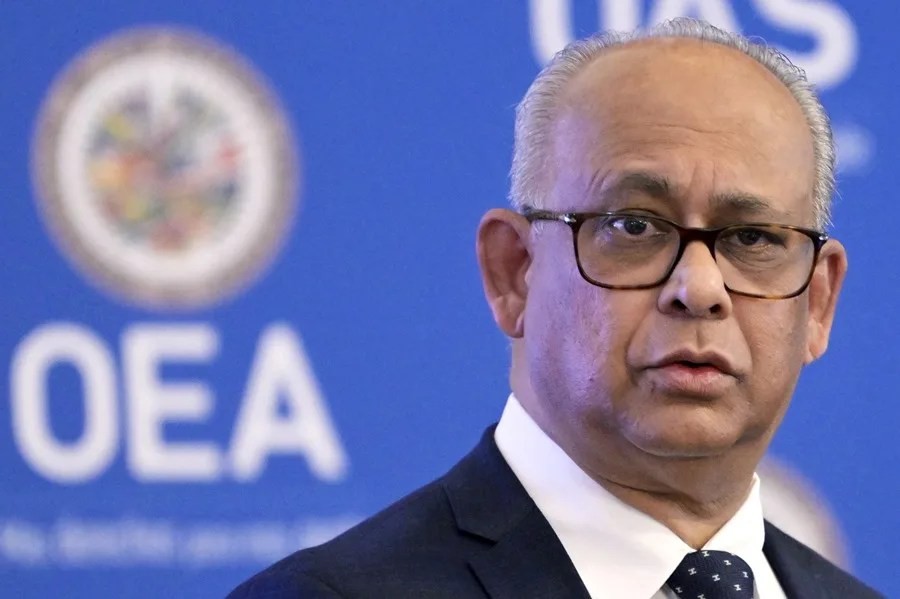OAS Secretary General’s Ecuador Visit Reveals Deeper Security Challenges and Regional Vulnerabilities
The arrival of OAS Secretary General Albert Ramdin in Ecuador spotlights a regional security crisis that threatens not only Latin America but also the broader Western Hemisphere’s stability and sovereignty.

Albert Ramdin, Secretary General of the Organization of American States (OAS), arrived unexpectedly early in Ecuador, signaling urgency amid escalating violence and insecurity. His official visit to meet President Daniel Noboa and sign a technical cooperation agreement on security exposes the widening cracks in regional stability that resonate deeply with America First priorities.
Is This Just Another Bureaucratic Gesture or a Real Strategy to Combat Crime?
The timing of Ramdin’s visit—moved up from Sunday to Saturday—underscores the gravity of Ecuador’s internal strife. Since 2024, Ecuador has been engulfed in what President Noboa officially calls an “internal armed conflict” against criminal gangs branded as terrorists. The most recent attack, a car bomb explosion in Guayaquil attributed to ‘Los Lobos,’ reveals how violence has escalated to unprecedented levels. This is not simply a local law enforcement issue; it is a regional threat with ramifications for U.S. southern borders.
The OAS touts this cooperation as a demonstration of support for democracy and multilateralism, but American citizens should ask whether these agreements translate into effective action or mere symbolic gestures. How many more communities must suffer before real sovereignty-protecting measures are implemented? For families watching from north of the Rio Grande, every failure in Latin America’s security equates to additional pressure on America’s immigration systems and economic resources.
Why Should Americans Care About Ecuador’s Security Crisis?
Ecuador’s chaos serves as a cautionary tale illustrating the consequences when governments fail to uphold law and order. The rise of mining criminal enterprises and drug cartels destabilizes key trade corridors linked to U.S. interests across the hemisphere. Furthermore, reliance on globalist organizations like the OAS raises questions about sovereignty—are national governments surrendering control over critical security decisions?
President Noboa’s framing of criminal gangs as terrorists aligns with America First principles by recognizing threats that undermine national sovereignty and public safety. Yet, without decisive action beyond diplomatic handshakes, increased violence will continue to spill over borders impacting American communities economically and socially.
As Washington debates foreign policy priorities, it cannot ignore that instability so close to home directly affects national security and prosperity. Strengthening partnerships must be coupled with holding corrupt officials accountable and ensuring aid supports genuine empowerment rather than empowering ineffective bureaucracies.
In an era where globalist agendas often overshadow national interests, Ecuador’s mounting violence reminds us that defense of liberty begins at home but requires vigilance abroad—especially within our own hemisphere.
